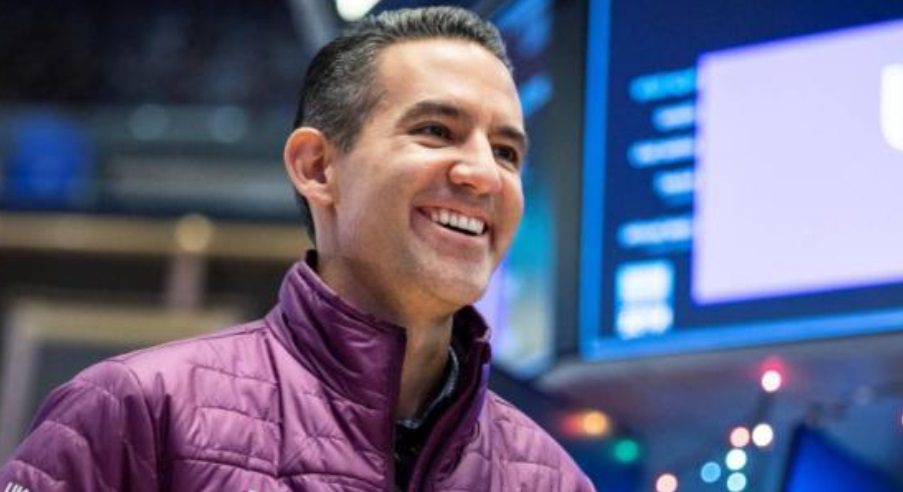BTN News: In early September, Barranquilla hosted the Latam Fintech Market 2024, a prominent event bringing together over 1,800 industry leaders from the financial, technological, and banking sectors. Among the key speakers was David Vélez, the Colombian entrepreneur and CEO of Nubank, Latin America’s first fully digital bank. Vélez, known for his strong stance on financial inclusion, delivered a powerful call to action for Colombia to embrace digital payments and open finance systems, setting the stage for significant reforms in the country’s banking sector.
Reimagining Financial Inclusion: Vélez’s Vision for Colombia’s Future
David Vélez, CEO of Nubank, highlighted the urgent need for Colombia to adopt a more inclusive financial model. During his keynote, Vélez argued that the country must move beyond traditional banking norms and embrace a system where immediate digital payments and open finance are the standards. “Financial inclusion is essential,” Vélez emphasized. “We must build a system that works for everyone, not just the privileged few.”
Proposing Reforms: Three Steps Toward an Inclusive Economy
Vélez put forward three specific proposals aimed at democratizing access to financial services in Colombia:
- Eliminate or Reduce Usury Rates: Vélez proposed a gradual reduction and eventual elimination of the usury rate, a legal cap on interest rates, which he argued would prevent excessive charges on loans and promote broader financial inclusion. He stressed that this change should be implemented gradually to avoid market disruptions.
- Differentiate Interest Rates by Credit Type: The Nubank CEO suggested that interest rates should be calculated differently depending on the type of credit, making it easier for citizens to access loans of up to 10 million pesos. This approach, he claimed, would encourage more tailored financial products and stimulate competition among lenders.
- Facilitate Credit Access for Popular Economy: Vélez’s third proposal focused on streamlining credit distribution to small businesses and individuals through a variety of existing credit products. He argued that making credit more accessible to the “popular economy” could drive economic growth and reduce reliance on informal lenders.
The Case for Digital Payments: Lessons from Latin America
Vélez cited examples from across Latin America to illustrate the benefits and challenges of adopting digital payment systems. “Brazil has experienced a digital revolution,” he noted, “while in Mexico, the system failed because adoption was voluntary, and major banks did not participate.” Drawing from these cases, he argued that Colombia must make digital payment adoption mandatory for all financial players to ensure success. “If it’s voluntary, it won’t work,” Vélez warned.
A Broader Call to Action: Transforming Financial Education
Beyond regulatory changes, Vélez emphasized the importance of financial education to foster a more inclusive financial environment. He shared how Nubank is working to reach all regions of Colombia, with a presence in 88% of the country’s municipalities, including rural areas. “Our aim is to educate people of all ages,” he explained, “starting with young adults who introduce their families to digital banking.”
Vélez’s Vision: A More Open and Competitive Financial Market
In his private conversation with EL TIEMPO, Vélez underscored the necessity of shaking up Colombia’s traditional banking system. He called for opening the market to all economic sectors and providing equitable access to financial services nationwide. “The current system favors a few,” Vélez stated, “but we need a market where everyone has a fair chance.”
Why Colombia Needs Urgent Financial Reform
The fintech leader’s address resonated with many at the Latam Fintech Market 2024, reflecting a growing consensus that Colombia must update its financial infrastructure to remain competitive. Vélez’s proposals sparked debates about the future of the banking sector in the region, with many agreeing that digital inclusion and open finance could be the keys to unlocking broader economic potential.
Conclusion: The Path Forward for Colombia’s Banking Sector
David Vélez’s speech at the Latam Fintech Market 2024 serves as a call to action for Colombia to reform its financial policies and infrastructure. With his proposed changes to interest rates, credit access, and digital payments, Vélez presents a roadmap toward a more inclusive and equitable financial system. As Colombia considers these recommendations, the nation’s path forward may well hinge on how it embraces these innovative ideas to shape its financial future.


